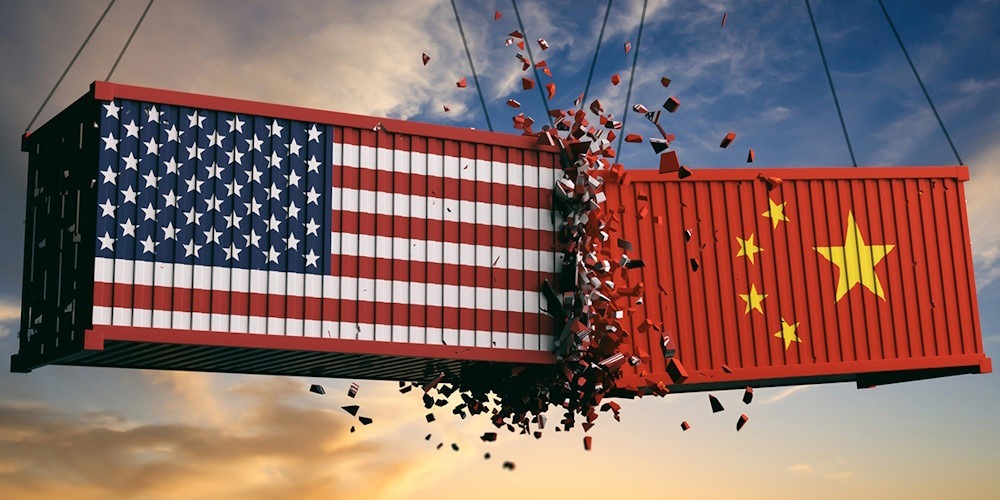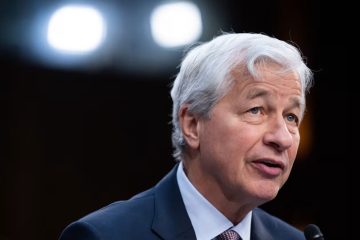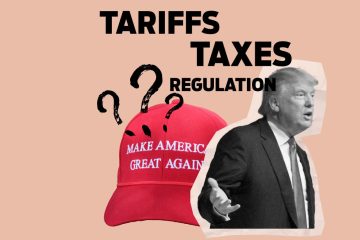China concerned of trade war Trump

China is deeply concerned about the possibility of another trade war with the Trump administration. China experienced setbacks during its trade dispute with the U.S. under President Donald Trump, but managed to recover in the end. If Trump is successful in securing the White House in November, the second round is expected to present more challenges.
The Republican candidate has expressed his intention to significantly increase tariffs on imports from China if he is elected as the President. China would experience significantly greater economic consequences compared to Trump’s initial term due to the imposition of higher tariffs and the increased vulnerability of its economy.
According to Matthew Gertken, chief geopolitical strategist at BCA Research, Trump is expected to have a significant impact on the Chinese economy as it experiences a decline. “They are at a higher risk.”
In 2018, a trade war broke out as tariffs were imposed by Trump on a wide range of imports from China, amounting to $350 billion. This included products such as solar panels, washing machines, steel, and aluminum. China responded by imposing tariffs on American goods.
According to many economists, China experienced the brunt of the trade dispute initially, but its impact was short-lived. During the pandemic, its exports experienced a significant rebound as consumers in the West, who were confined to their homes, indulged in consumer electronics and other domestic luxuries.
Chinese exporters have successfully tapped into new markets, thanks to government assistance and competitive pricing. China’s goods trade surplus reached a new monthly high in June, nearing $100 billion. This increase was driven by strong export performance to the European Union and southeast Asia.
China is facing challenges in various areas, with the exception of its exports.
The increase in exports provides a glimmer of hope amidst the challenges faced by the economy. A severe property shortage has been ongoing for three years now. Chinese consumers are being cautious with their spending due to the property meltdown and the ongoing impact of the pandemic. The financial situation of local government is facing significant challenges, while confidence in the private sector remains low.
China’s heavy dependence on manufacturing and exports makes it highly vulnerable to any further escalation in the trade tensions between the United States and China.
According to Patrick Zweifel, the chief economist at Pictet Asset Management, the continuation of a more-selective tariff policy under a potential Kamala Harris presidency could potentially have a marginal impact of around 0.03 percentage point on Chinese economic growth in the coming year.
If tariffs were increased to 60% on all Chinese goods, as proposed by Trump, the impact would be significantly greater. It could potentially reduce growth in 2025 to around 3.4% from the expected 4.8% according to his forecasts.
According to UBS, if there were to be a 60% tariff on U.S. imports of Chinese goods, it would have a significant impact on GDP growth. They estimate that it could potentially hold back growth by around 2.5 percentage points in the year following its imposition. However, if China were to take offsetting actions, the drag on GDP growth could be reduced to 1.5% points.
Some possible responses include: Chinese policymakers may consider allowing its currency to depreciate further, providing additional tax rebates and incentives to exporters, and reducing interest rates. Goldman Sachs suggests that in order to influence the U.S. to reconsider, retaliatory measures could be taken, such as increasing tariffs on American goods, restricting the supply of essential minerals, and potentially selling off U.S. assets like Treasurys.
Research conducted by universities in China and Stanford University revealed that the initial tariffs imposed by Trump had a detrimental impact on exports, corporate earnings, business and consumer confidence, as well as investment and hiring. Experts argue that the potential consequences would be even more significant this time around, as President Trump plans to impose tariffs on all imports from China.
Other countries are also implementing trade restrictions
Chinese companies are facing challenges as they grapple with weak demand and an ongoing oversupply issue, which is putting pressure on their profits. Producer prices have been on a downward trend for nearly two years. According to Nick Borst, director of China research at Seafarer Capital Partners, a California asset manager focused on emerging markets, a company with a profit margin of 5% or 6% would find it extremely difficult to handle tariffs as high as 60%.
Since 2018, China has shifted its export focus from the U.S. and is now prioritizing sales to developing economies. Due to the substantial tariff imposed by the U.S., China would be compelled to increase its sales to alternative markets. However, countries like India, Brazil, and Mexico are starting to resist Chinese imports due to their worries about the impact on local employment and industries.
If China faces restrictions in the U.S. market, they will need to intensify their efforts to promote their goods in other destinations. “And other destinations may not be as accepting,” commented Adam Slater, the chief economist at Oxford Economics.
China has the potential to ease these tensions by establishing factories abroad to cater to local markets. According to Borst, China’s leadership has conflicting views on overseas expansion due to concerns about potential job losses in the manufacturing sector at home.










